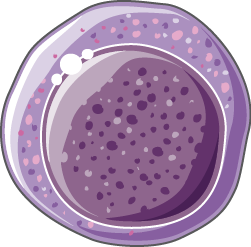One kind of cancer treatment that aids the immune system in identifying and combating cancer cells is immunotherapy. It is classified into many primary forms and utilizes the body's natural defenses:
1. Monoclonal antibodies: Lab-made molecules known as monoclonal antibodies have the ability to attach to particular sites on cancer cells, designating them for immune system destruction. Examples include rituximab (Rituxan) for certain lymphomas and trastuzumab (Herceptin) for breast cancer.
2. Checkpoint Inhibitors: These medications disrupt proteins that stop cancer cells from being attacked by the immune system. When it comes to the immune system, they "release the brakes" Nivolumab (Opdivo) and pembrolizumab (Keytruda) are examples of common checkpoint inhibitors.
3. Vaccines against cancer: These vaccines aid the immune system in identifying and combating cancerous cells. Examples include therapeutic vaccinations such as sipuleucel-T (Provenge) for prostate cancer and the HPV vaccine, which can help prevent cervical cancer.
4. Cytokines: These proteins have the ability to strengthen the immune system. Examples of substances that can increase immune cell activity are interleukins and interferons.
5. CAR T-Cell Therapy: In this individualized treatment, a patient's T cells are altered in a laboratory to more effectively identify and eliminate cancer cells. In certain blood malignancies, it has demonstrated notable efficacy.
For some cancers, immunotherapy can be very helpful, but it can also have negative effects since it might trigger the immune system to attack healthy cells.






No comments:
Post a Comment